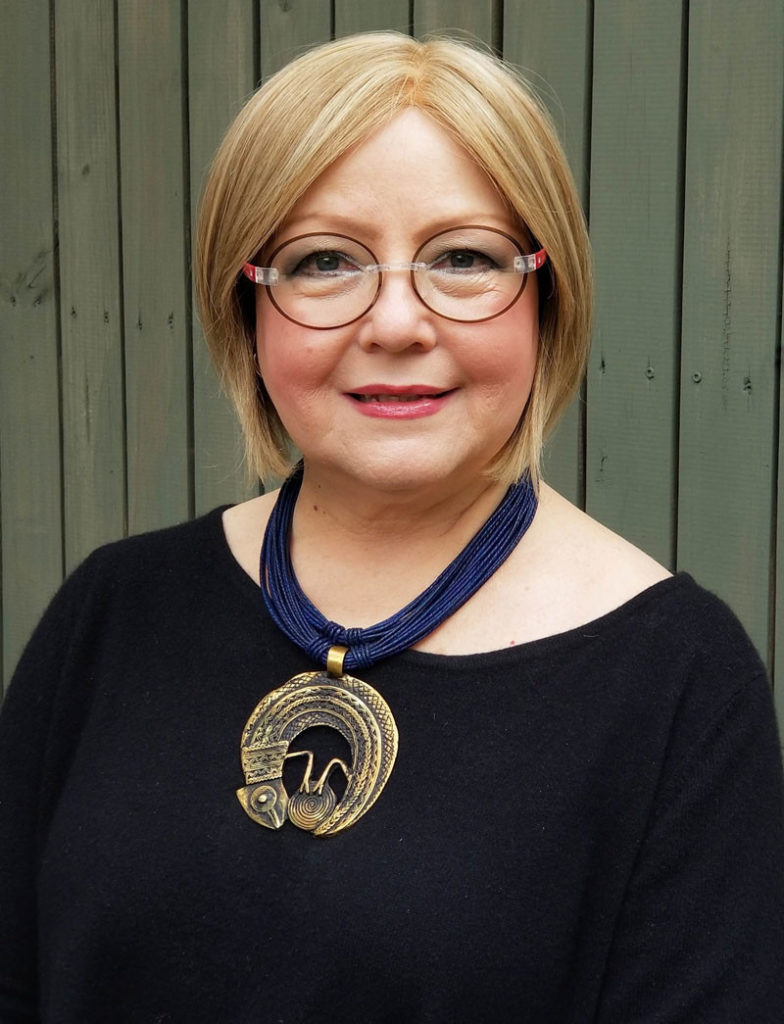
Creative Associates International recently named Sandy Oleksy-Ojikutu, Ph.D., as a Senior Advisor. She is an authority on Sub-Saharan Africa with three decades of project design and implementation experience at the U.S. Agency for International Development.
In this Q&A, Oleksy-Ojikutu shares her passion for Africa and the value of dialogue for international development partners.
What drives your passion for Africa?
Oleksy-Ojikutu: I went to live in Nigeria, West Africa, as a consequence of a personal choice. I lived within a Nigerian family, my husband’s family, now my family.
Having left my post at Pace University in New York, I smoothly transitioned into joining the Faculty of Education at Nigeria’s University of Lagos (UNILAG) training teachers and lecturing on aspects of educational psychology. There, I gained tenure and earned a sabbatical year back in New York at Columbia University.
Toward the end of my time at UNILAG, my work with doctoral students focused on traditional counseling for adolescent and young adults analyzing the use of totems, ceremonies and age-grades to mark both the passage of time and the assumption of social responsibilities. My students taught me about the many challenges of growing up in Nigeria (as well as in Liberia, Libya, and Iran!) and about the role of their cultures in aiding their progress. They taught me to really listen without judgment. To be an honest observer and an advocate, from the position of an outsider.
These insights served me well as I expanded my work through USAID across the continent — to listen deeply to individuals to understand their values and vision without judgment. To value differences, to see individuals, communities and nations in one panoramic view. And then have a dialogue with host governments, communities and individuals.
When you live in any part of Africa and deal with daily life issues as your own personal issues over an extended time (32 years in my case), you quietly internalize insight into African values. I simply want Africa — as a continent, a collection of nations, and as an amalgamation of individuals — to succeed and prosper, and I want to support that process. This desire grew over time and through experiences with individual Africans. It continues to grow.
Having worked in development for two decades, what do you think should be the focus of international partners in Africa?
Oleksy-Ojikutu: Basic needs exist across Africa, and similarly across the world. It is a matter of degree. I know folks would like me to identify a hierarchy of needs, but it just is not that simple. Good health services ensure and protect life. Education provides the skills needed for a good quality of life. Food security sustains life. Rule of law and democratic elections maintain peace and security for individuals and their respective nations. Electrical power supports industrial development and promotes safety. Trade hubs facilitate personal and national economic growth, and so on. Since these basic needs are simultaneous and not sequential in most countries, international development partners negotiate with African nations to bring their unique strengths and skills to specific geographic areas to assist in addressing basic needs. Yes, various political considerations are part of the decision making, but the goal is to eliminate dire needs (e.g., extreme poverty) and assist nations in developing solutions that meet and service basic needs. The impacts are cumulative across a broad spectrum of development interventions within a nation.
From your experience, what lessons have international development partners learned from their development work in Africa?
Oleksy-Ojikutu: We have learned a great deal about what does not work, including imposing external plans in development contexts, or using development funding as an effort to secure sustainability. We have learned to do better by co-creating with host countries and direct beneficiaries as we design international development activities. We have adjusted our perspective on exactly what international development is.
From your perspective, what should they do to better translate lessons learned in their programming?
Oleksy-Ojikutu: I end where I began. International development partners need to listen deeply to, and work directly with, their African counterparts and beneficiaries. The resulting dialogue would address the reconciliation of the needs/goals of the development partner and the beneficiaries.
What are the key areas Creative may have to consider doing development work in Africa?
Oleksy-Ojikutu: Creative’s staff does listen deeply, understanding the value of dialogue with host country counterparts and beneficiaries when designing interventions in response to solicitations. This type of dialogue is not an easy task — moreover, Creative does this well! Their resulting submissions have that ring-of-truth. They address donor needs and requirements while respecting and representing the beneficiaries’ self-defined needs. Perhaps that is the unique ingredient needed for sustainability.
